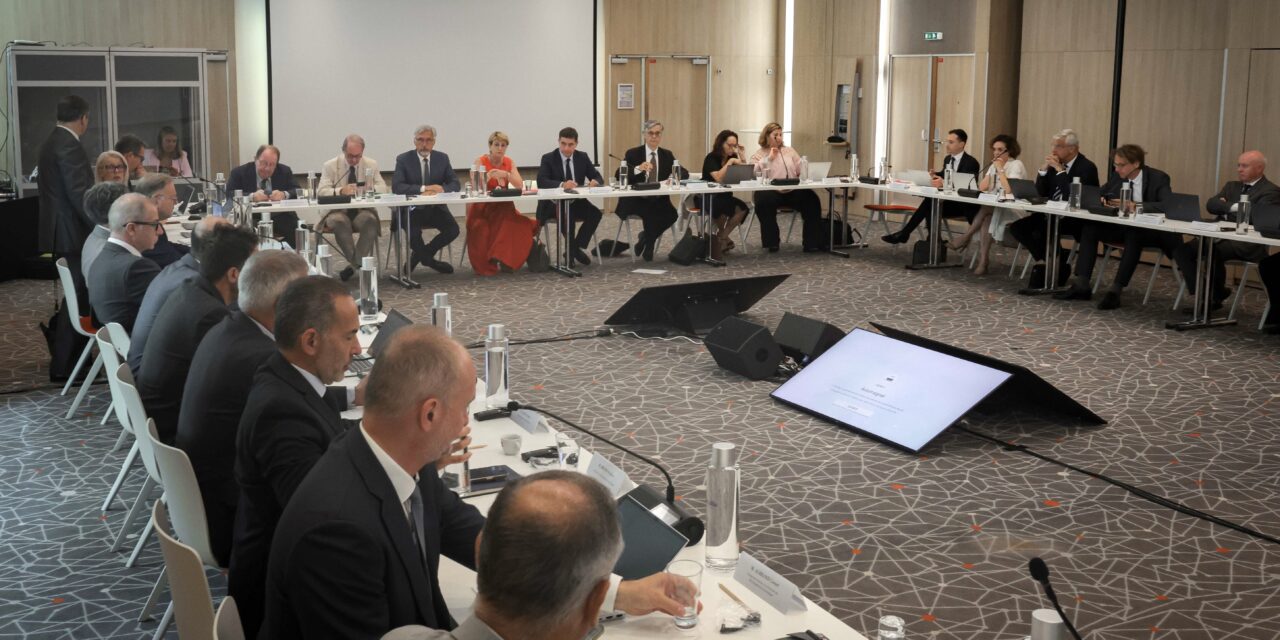The Principality has reaffirmed its commitment to tightening financial safeguards, as the two branches of the national committee tasked with fighting money laundering, terrorism financing, weapons proliferation, and corruption met on Tuesday, June 17 under the chairmanship of Isabelle Berro-Amadeï, Minister of Foreign Affairs and acting State Minister.
The meeting gathered senior officials, including National Council representatives and private sector stakeholders, to assess Monaco’s progress since its addition to the Financial Action Task Force’s (FATF) grey list. Minister Berro-Amadeï praised the “unwavering commitment” of all involved in driving forward substantial improvements to the country’s compliance framework.
Those improvements were highlighted during both the Primary College session and the plenary committee meeting, following the recent adoption of Monaco’s first progress report by the FATF on 13 June. The report recognised key milestones achieved during the current evaluation cycle, as well as those slated for the next phase of scrutiny by the ICRG (International Cooperation Review Group).
Recent developments include the official publication of Sovereign Ordinance No. 11.242 in the Journal de Monaco, which formally establishes the legal mechanism allowing a magistrate to preside over sanction hearings within the Monaco Financial Security Authority (AMSF).
Looking ahead, preparations are already underway for the Principality’s next evaluation by MONEYVAL, the Council of Europe’s monitoring body.
Addressing recent concerns raised by Monaco’s inclusion on the European Union’s high-risk third country list, the Government clarified that this move stems automatically from the FATF greylisting, based on standard EU procedures.
The meeting also served to bolster cooperation between state bodies and the private sector, with authorities urging all parties to maintain their active involvement.
In a further sign of commitment to international standards, Monaco signed an amendment on Sunday, June 8 to the 1963 Customs Convention with France, underscoring the importance of cross-border collaboration.
Additional legal reforms are in the pipeline. A bill introducing the concept of judicial reserve and provisions for appointing magistrates to administrative bodies was submitted to the National Council on Thursday, June 12. Separately, on Wednesday, June 4, the Government confirmed it would convert proposed legislation on plea bargaining and criminal agreements into a full draft law.
The message from Monaco is clear: the Principality intends not only to meet, but to exceed, the demands of international financial governance.

